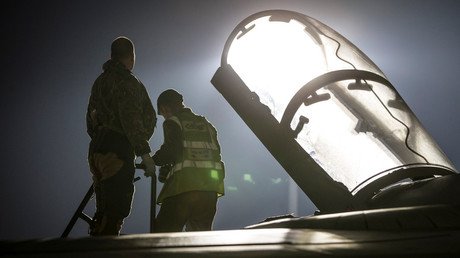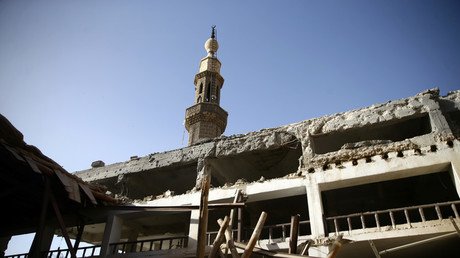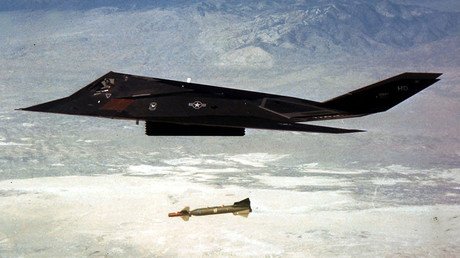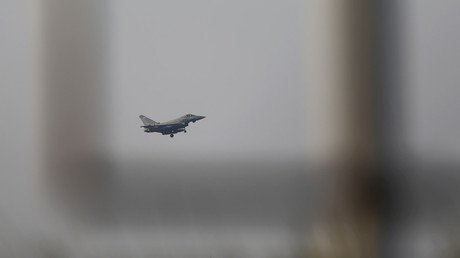Striking Syria: The true face of humanitarian imperialism
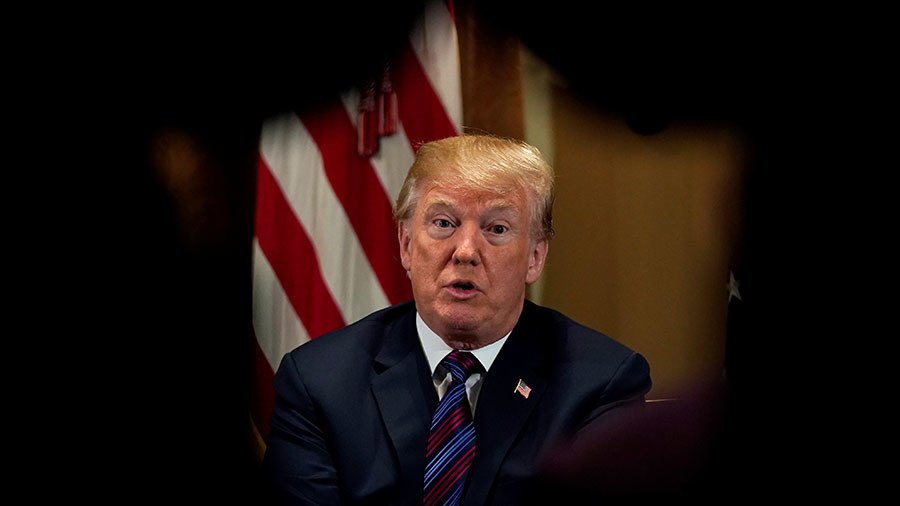
Coordinated military strikes by the US, France and the UK against Syrian government installations as punishment for President Assad’s alleged use of chemical weapons have deepened the quagmire instead of deterring war crimes.
US President Donald Trump’s claims that the Western attacks represent “righteous power against barbarism and brutality” of the Assad regime, and that he is prepared to “sustain this response” until Assad stops gassing his own people, shroud the strategic and geopolitical calculations driving the Western agenda in the long-drawn-out Syrian war.
The garb of morality cloaks the reality that Washington and its allies have lost the ground war in Syria and are seeking to maintain their relevance as stakeholders by invoking humanitarian pretexts.
Since the Syrian conflict began in 2011, the US and its regional partners such as Saudi Arabia, Israel, Qatar and Turkey have financed and armed a variety of anti-Assad rebel groups that are now marginalized due to a tenacious counter-insurgency pushback by the Syrian state and its two principal external backers— Russia and Iran.
Much to the chagrin of strategists in Washington, Riyadh and Tel Aviv, jihadist as well as relatively secular Sunni insurgent movements like Al-Nusra Front, Jaysh-al-Islam, Ahrar-al-Sham and the Free Syrian Army (FSA) have been routed. Some of these terrorists are as obnoxious and vicious as Islamic State (IS, formerly ISIS), but they got branded as ‘moderate’ by the US and its allies because they served as Western proxies against Shiite Iran.
Repeated charges of chemical weapons usage by Assad and accompanying shocking video footage and photographs emanate from these Western proxies, which believe that they can avoid being totally vanquished if US-led offensives keep the Syrian state weak and uncertain about its future.
Although previous investigations by United Nations and the Organization for the Prohibition of Chemical Weapons (OPCW) have blamed both the Assad regime and its jihadist foes for abominable usage of weapons of mass destruction, the drumbeat from Western intelligence and news media is against the Syrian government as the sole and main culprit. Such a cynical and selective humanitarianism is the product of realpolitik, wherein atrocities committed by Western allies are shoved under the carpet while those attributed to their antagonists are painted as unconscionable crimes which must be prevented through Western military intervention.
When a politician like Trump opportunistically cites human rights concerns as his motivation to launch missile attacks, it must be taken with a grain of salt. The US president has displayed a remarkable comfort level with several violent regimes and has praised their actions if they enable American vested interests. His foreign policy ideology is the antithesis of ‘liberal’ and he does not care two hoots for saving the lives of non-Americans.
What Trump does care about, or at least his hawkish advisers in the security establishment do, is the US’ prestige as a hegemon whose credibility rests on periodic shows of military superiority. In Syria and Iraq, although the stated goal of the American military presence is to root out IS and other terrorists, Washington’s ultimate objective is to hunker down and establish a permanent presence in the pivotal Levant region. The desire to stay put is rationalized by military planners in the US as a necessary measure to ‘stabilize’ Syria and Iraq, which is a code for preventing what they fear is an Iranian-Russian takeover of control of the Levant.
The dissimulation ploy of American strategic elites is to say that their troops must remain to clean up the remnants of IS and keep the area safe from a resurgence of jihadism. But what they want is a fait accompli on the ground to guarantee Israel and Saudi Arabia against Iranian and Russian expansion. The recent plea from Saudi Crown Prince Mohammad bin Salman to Trump not to hastily exit the US military from Syria uncovers the true motivation. Chemical attack accusations amid the fog of a war full of impunity help to burnish this pre-decided plan that the US and its allies should not ‘abandon’ Syria.
READ MORE: Syria withdrawal dilemma: Trump's Mideast strategy is as confused as ever
As a populist and contrarian politician who lacks a grand strategic vision, Trump has a contradictory instinct to pull out the 2,000-odd American forces from Syria. Hence his preference for one-off demonstrations of US military might without sinking into a morass through a broader campaign to overthrow Assad. Yet, conveniently-timed chemical attacks whose occurrence and authorship are murky are tipping his hand into acquiescing in a longer-term American military presence in Syria.
Sadly, sporadic and dubiously justified US and allied airstrikes on selected Syrian targets have not and will not reduce the suffering of the Syrian people. Trump’s resort to the airstrike option whenever there is a hue and cry about chemical attacks reveals how limited his leverage is in dictating a final settlement and overall end to the war. Despite his macho threat to Russia to “get ready” to face “nice, new and smart” missiles, President Putin remains the entrenched kingmaker in Syria. And as long as he is in the driver’s seat, the US’ ‘humanitarian’ bombing raids will continue under one ruse or another.
The ‘sustained’ reaction to chemical attacks that Trump is warning of will be implemented until the US can alter the balance of power in Syria, if not fully in its favor, then at least partially.
The frenzied narrative surrounding chemical warfare is thus an illustration of a frustrated America desperately attempting to retain some skin in the game. This is the supreme tragedy of Syria, where Western humanitarian imperialism is a smokescreen for ruthless power play.
Think your friends would be interested? Share this story!
The statements, views and opinions expressed in this column are solely those of the author and do not necessarily represent those of RT.

